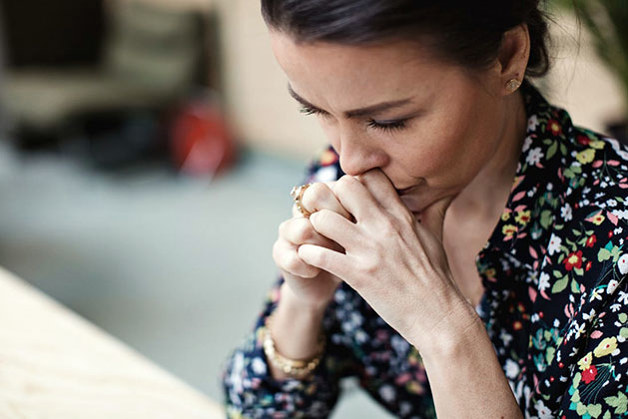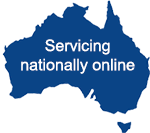Psychologists Online across Australia for counselling, testing and groups - Melbourne, Sydney, Brisbane, Adelaide, Hobart, Perth and Canberra

What is Depression?
More than 2 million people in Australia suffer from some form of depression, according to the Australian Bureau of Statistics, or 9.3 per cent of our population. Nd around 1 in 6 people – 1 in 5 women and 1 in 8 men – will experience MDD at some point in their lives.
Depression is a mental health disorder characterised by an enduring low mood or loss of interest in activities that a person normally enjoys.
It can cause a range of emotional and physical symptoms, including feeling persistently sad or hopeless, having a loss of energy and difficulty concentrating, experiencing a change in appetite or sleep patterns, and having difficulty performing everyday activities. In addition to the emotional symptoms, depression can lead to physical issues such as fatigue, and feelings of worthlessness or guilt.
- Persistent depressive disorder, also known as dysthymia, is a type of depression that lasts for at least two years and is characterized by a low mood and a decreased ability to enjoy life.
- Seasonal affective disorder (SAD) is a type of depression that occurs during certain times of the year, usually during the winter months.
- Postpartum depression can occur in the weeks or months after childbirth.
- Premenstrual dysphoric disorder (PMDD) is a type of depression that occurs in the days leading up to a woman's menstrual cycle.
- Psychotic depression is a severe form of depression in which the person experiences hallucinations or delusions in addition to the typical symptoms of depression.
- Bipolar disorder is a mental health disorder characterised by extreme mood swings between depression and mania.

Bipolar Screener
Are you experiencing unexpected mood changes from highs to lows, fluctuations in energy levels or the ability to function? This 1-session screener will help identify any signs of Bipolar disorder.
Cost: $200
How can we help?
We can all feel down every now and again. When a relationship breaks up, you lose your job or someone close to you dies, it’s natural to feel low. But when those feelings persist for more than 7 days, even when life has gone back to normal, it is time to seek help.
Psychology Melbourne provides you with comprehensive treatment services for adults and adolescents suffering from depression.
This may include one or more of the following:
- One-on-one counselling
- Psychological testing
- Group therapy
One-On-One Counselling
Individual psychologist counselling provides people with a safe place to work through their personal or psychological problems, knowing that everything they say is confidential. It includes a series of 1-hour online or face-to-face individual consultations with an experienced psychologist.
Our team of experienced psychologists are skilled in working with a range of depressive disorders, including Major depressive disorder, Persistent depressive disorder, Bipolar disorder, Seasonal affective disorder (SAD), Postpartum depression, Premenstrual dysphoric disorder (PMDD) and Psychotic depression.
Psychological Testing
Before your first session you will receive an initial psychological assessment to identify the type of depression you may have and guide your psychologist in developing a treatment plan for you.
This may include any of the following: Major depressive disorder (MDD), Persistent depressive disorder (PDD), Bipolar disorder, (BPD), Seasonal affective disorder (SAD), Postpartum depression, Premenstrual dysphoric disorder (PMDD) and Psychotic depression.
Depending on your results, further testing may be required.
Group Therapy
Group therapy is an alternative, effective treatment for depression that includes working with others with similar challenges.
People often feel alone and like they are the only ones struggling with depression. It can be a huge relief to hear others discuss what you are going through.
You can join a group on completion of your one-on-one counselling or as a stand-alone treatment.
For more information about our Depression group counselling or on any of the above, please contact our Reception team on 1300 161 639 or email us at info@psychologymelbourne.com.au or use the chat box on this website.
How does a Depression Assessment work?
We begin with a screening test called the PsychProfiler to identify what sort of depression you are experiencing. The PsychProfiler is an online assessment that screens for depressive disorders in adults and adolescents, including persistent depressive disorder and major depressive disorder.
Your psychologist will also use the criteria for depression listed in the Diagnostic and Statistical Manual of Mental Disorders (DSM-5), published by the American Psychiatric Association.
Further screening tests or full tests may be required to confirm the type and severity of depression you are experiencing.
These tests include:
- Major depressive disorder (MDD) - Beck's Depression Inventory and Patient Health Questionnaire – Depression (PHQ-9).
- Persistent depressive disorder (PDD) - Center for Epidemiologic Studies Depression Scale – Revised (CESD-R).
- Bipolar disorder (BPD)- Mood Disorder Questionnaire (MDQ).
- Seasonal affective disorder (SAD) - Personal Inventory for Depression and SAD Self-Assessment Version (PIDS-SA).
- Postpartum depression and Premenstrual dysphoric disorder (PMDD) - Edinburgh Postnatal Depression Scale (EPDS).
- Psychotic depression - the Psychotic Depression Assessment Scale (PDAS).
There are often overlaps between the various depression-related disorders and our screening tests will assist your psychologist to identify the right treatment plan for you.
After reviewing your tests results, your psychologist may recommend:
- further testing if the results are not clear enough;
- a series of one-on-one counselling sessions
- A Depression therapy group.
The main treatments for depressive disorders are psychological counselling medication, and group therapy.
How does One-on-One Counselling work?
Your psychologist will review the results of your screening tests and conduct a full clinical history to try to understand the possible sources of your depression.
Counselling, also known as talk therapy, involves talking about your personal feelings and beliefs with an experienced psychologist in a highly confidential environment. It can help you with:
- Adjusting to a crisis or other difficulties
- Identify negative beliefs and replace them with more positive ones
- Explore your relationships, and show you how to increase positive interactions with others
- Improve your ability to solve problems
- Gain a new, healthier perspective
- Regain a sense of control in your life to reduce hopelessness and anger
- Learn to set realistic goals for your life accept distress using healthier behaviours
The most effective therapies for depression are cognitive behavioural therapy and/or interpersonal therapy. Your psychologist may also recommend other types of therapies.
During your individual sessions, your psychologist may provide exercises for you to do and recommend various resources and apps to help you manage your symptoms.
Psychology Melbourne has a large team of male and female psychologists who provide in-person and online counselling for depression They are available six days a week, both before and after working hours and on Saturdays
A combination of counselling and medication is often recommended. However, your psychologist will work together with you to discuss the advantages and disadvantages of the medication pathway.
Medication
Psychologists are currently not able to prescribe psychiatric medication and if you decide to pursue medication, our psychologists will provide your GP with a report on your situation so they can be fully informed when prescribing medication.
Many types of antidepressants are available to relieve symptoms of depression, and you may need to try several or a combination of medications before you find the right one for you. These include Selective serotonin reuptake inhibitors (SNRIs), Tricyclic antidepressants and Monoamine oxidase inhibitors (MAOIs).
These medications are best used as a short-term relief from depression and to avoid side effects, are not intended to be used long term. For a more permanent solution, therapeutic behavioural strategies are a safer solution.
Our psychologists can discuss with you some of the benefits, risks, and possible side effects of medications to help you make your own decision.
If you or someone you know is struggling or in crisis, contact our Reception team on 1300 161 639 or email us at info@psychologymelbourne.com.au or use the chat box on this website.

How does Group Therapy work?
Our Depression Support groups are online and led by experienced psychologists on a weekly basis for 6 – 8 people. They can follow individual counselling or be a first point of call. You will learn strategies for managing depression and be encouraged to share and reflect on your own experiences.
While some people benefit from one-on-one therapy, many find a group setting more helpful. Talking to others who share the same experience and understand what you are talking about can be a great support and provide useful tips for handling situations outside the therapy room.
Group work is extremely rewarding. Regularly talking and listening to others also helps to put your own problems in perspective. Seeing other people tackle problems and make positive changes, can teach a full range of strategies for facing your own concerns.
Group therapy is not just clinically effective, it is cost effective as well. See below for details.
How much does it cost?
Psychology Melbourne’s fees for Depression Treatment is as follows:
1. Individual Counselling
We have a large team of male and female psychologists who provide in-person and online counselling. They are available six days a week, for sessions both before and after regular working hours, as well as, all day on Saturdays.
Medicare rebates may be available if you have a Mental Health Care Plan from your GP.
- Consultations with a clinical psychologist start from $275 and a Medicare rebate of $141.85 may apply for each session you attend, making an out-of-pocket fee of $133.15 per session.
- Consultations with a registered psychologist start from $230 and a Medicare rebate of $96.65 may apply for every session you attend, making an out-of-pocket fee of $133.35 per session.
- The fees for consultations differ between in-person and online sessions. There is an additional fee of $10 for appointments scheduled before 9 am and after 5 pm weekdays, as well as, for appointments throughout the day on Saturdays.
- Medicare rebates are available for 10 one-on-one counselling sessions per calendar year if you have a Mental Health Care Plan from your GP.
- To access funded services from a third party, such as Workcover, you must provide approved claim details 48 hours before your first session. If, for any reason, approval is not provided, you will be responsible for full payment, or appointments may be cancelled. A gap fee of $20 per session may apply.
- A reduced fee is considered on request for clients under financial hardship with a letter from your GP confirming your financial situation.
- Fees can be paid by EFTPOS, VISA, or MasterCard. Please note that we do not accept American Express or Diners Club.
- Bulk Billing is not available at our clinic.
- We support NDIS participants with self-managed or plan-managed funding. While we are not a registered NDIS provider, our services may be accessible under your NDIS plan. If you’re unsure about eligibility, check with your plan manager or NDIS coordinator.
For more information, please contact our Reception team on 1300 161 639 or email us at info@psychologymelbourne.com.au or use the chat box on this website.
2. Depression Group Counselling
Group therapy is not just clinically effective, it is cost effective as well. The cost of the online Depression group for all 6 sessions is approximately $50 per session.
They are small groups with 6 – 10 people and they are usually held in the evenings. Medicare rebates may be available if you have a Mental Health Care Plan from your GP.
- Groups run by a clinical psychologist cost $510 and a Medicare rebate of $36.00 may apply for every session you attend, making an out-of-pocket fee of $294.00.
- Groups run by a registered psychologist cost $450 and a Medicare rebate of $24.65 may apply for every session you attend, making an out-of-pocket fee of $302.10.
- Medicare rebates are available for 10 1-hour group sessions per year if you have a Mental Health Care Plan from your GP and are located in a telehealth eligible area.
- After pay is available for the initial cost of the group and rebates are sent to your nominated account after each session.
- Some private health funds offer refunds for one-on-one counselling sessions. Please contact your private health provider to find out more about your policy.
For more information, please contact our Reception team on 1300 161 639 or email us at info@psychologymelbourne.com.au or use the chat box on this website.
How to make an appointment
Counselling appointments
For individual counselling appointments you can book online or call our Reception team on 1300 161 639 or email us at info@psychologymelbourne.com.au or use the chat box on this website.
Reception will find an appointment time that suits you best and will reserve 3 future appointments in the diary so that you can keep your place in your psychologist’s diary. Appointments after that will be made between you and your consultant.
We understand that changes to your appointments are sometimes necessary, but we urge you to notify us as soon as possible to avoid cancellation fees. You will be sent an SMS reminder four (4) days before your appointment.
For in-person appointments we have strict precautions in place at all our locations for your safety. If you are feeling unwell, have any symptoms of fever, or have tested positive for COVID-19, we ask you to use our online counselling services until you are well again.
Please bring your Mental Health Care Plan to your first session or email it to us at info@psychologymelbourne.com.au. Alternatively, you can ask your GP to fax this through to us on 03 9957 8122.
Group appointments
We require prepayment of all groups prior to the start date. You can purchase the group on our website or call our Reception team for assistance on 1300 161 639 or email them info@psychologymelbourne.com.au or use the chat box on this website.
Once you have enrolled in the group, you will be sent several forms to complete before the group starts. If you have any questions about forms, please speak to our helpful Reception team. The forms are required to be completed 24 hours before the group starts.
You will need to join the online group 10 minutes before it starts to ensure there are no technology problems. Assistance on the night is only available for 10 minutes before and after the start time.
Alternatively, we can show you how to join on the day prior to the group starting.
If you have any technology problems, please check your audio and video are working properly as well as your Wi-Fi connection. Refresh your browser if you are still experiencing problems.





